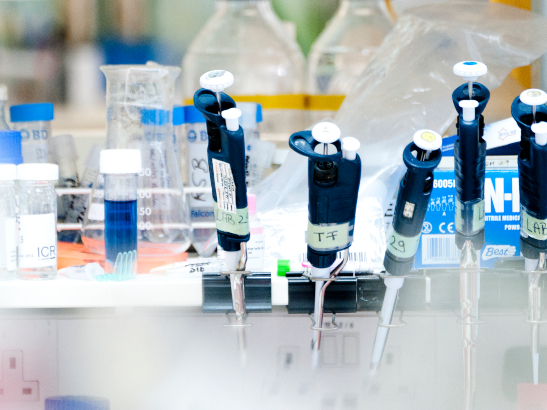Improving access to clinical trials
Clinical trials are the single best way to turn advances in science into patient benefits. The ICR has a vision that a suitable trial should be made available for every person with cancer who wants to be part of one.

Expanding trial access – ICR report
Our 2021 report, Clinical trials in cancer, reveals the impact of the Covid-19 pandemic on cancer trials and highlights longstanding barriers to expanding clinical trial access to more people with cancer. But Covid-19 also offers clues to a recovery that can get new treatments to cancer patients more quickly.

News: Cancer trial recruitment drops by 60 per cent during pandemic
The number of cancer patients entering clinical trials has plummeted during the pandemic – denying many thousands the latest treatment options and delaying drug development. Here, cancer experts set out their findings about the barriers to carrying out clinical trials in the UK and proposals for boosting participation.Latest ICR News

ICR appoints global business leader as new Trustee
Dr Michelle Harrison – an international business leader with three decades of experience advising clients in global public policy, public affairs and brand building – has joined the Board of Trustees of The Institute of Cancer Research, London.

ICR welcomes approval of plans for major life-sciences district The London Cancer Hub
The Institute of Cancer Research (ICR) has welcomed the approval of ambitious new plans to create a home for oncology and life-sciences companies in Sutton, south London.

New structural insights reveal how key DNA repair enzymes are recruited and controlled
Researchers have uncovered how a key DNA repair enzyme is recruited and activated inside cells, answering long-standing questions about how cells protect and repair their DNA and providing the structural groundwork that could support the refinement of existing cancer therapies.

ICR responds to the Government’s National Cancer Plan
The Government has today published the National Cancer Plan, setting out a 10-year strategy to improve cancer outcomes in England through new targets and measures to accelerate diagnosis and treatment.